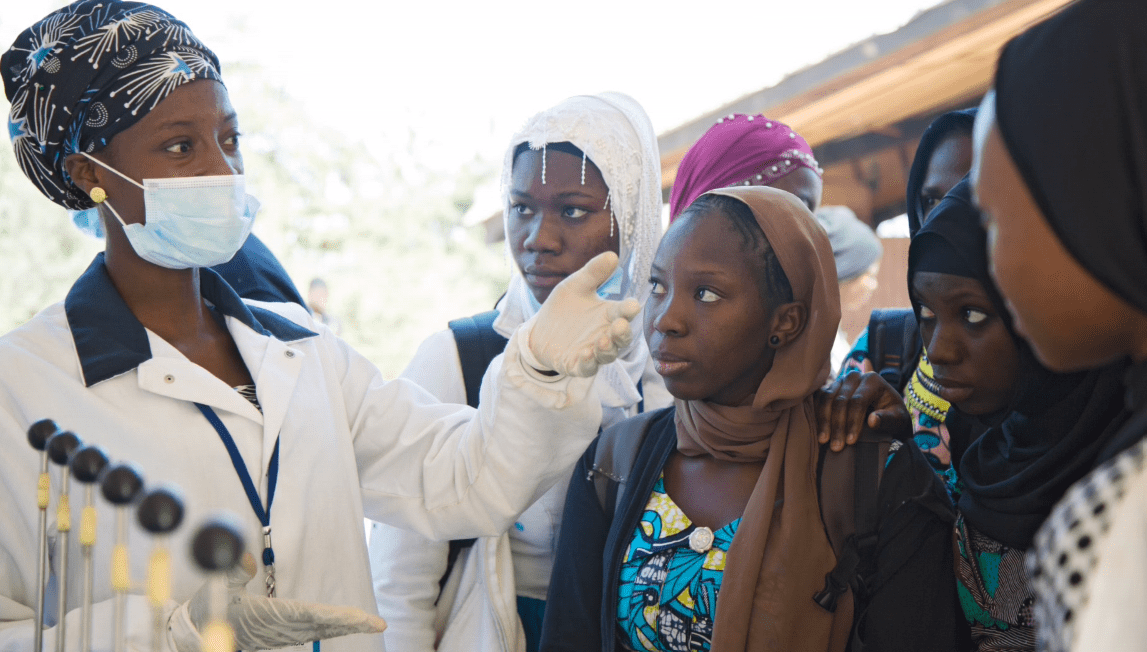
Unique collaboration in Mali: Joint Masters in IWRM
Four higher education institutions initiate a joint Masters programme in Integrated Water Resources Management (IWRM)
Water is a critical issue in Mali. As one education leader from the higher education institute IPR/IFRA stated a few years ago: “Religion, territory and race are only alibis – access to water is essentially the real cause for most of the conflicts in Mali.”
Running through this very dry, West African country, is the most important river in that region, the Niger. The water resources coming from this river and its inland delta are critical to economic activities and food security in Mali. Yet the combination of factors like climate change, population growth and large irrigation projects have greatly affected the quality and quantity of the water that is available. It was with the goal of stimulating a better approach to managing this vital resource that the iCRA-led IES4GIRE project was born. Four years on, this project has now come to a successful completion.
On November 26, 2020, in spite of the Covid19 pandemic, a very unique collaboration in Mali was launched: a Joint Masters programme in Integrated Water Resources Management (IWRM), between four higher education institutions (ENI-ABT, IPR/IFRA, USTTB, USJPB). Even the face masks that had to be worn did not hide the enthusiasm of leaders of the four institutions based in and around Bamako, capital of Mali.
Especially delighted was the project coordinator, Dr Kalifa Keita, water-quality professor at USTTB, who had the unenviable task of keeping the different actors from four different institutions on the same page. While top leaders at all the institutions supported the idea of creating an integrated Master’s degree, this challenge required four years of long and tough deliberations, and certainly there were moments of doubt about whether it would come together on time.
Deciding on the IWRM specialisations was not so difficult, each institution focusing on what they did best: Water Quality & Sanitation (USTTB), Governance of Water (USJPB), Water & Engineering (ENI), Water & Agriculture (IPR/IFRA). However, a more arduous process was needed to come to agreement on what core subjects should form the common curriculum for all students before they moved on to their chosen specialisation at one of the four institutions. Key teaching and research staff underwent a series of training in competences such as the IWRM approach, Watershed management, using GPS, stimulating Entrepreneurship skills, developing a Competence-based curriculum. Another key theme was Gender equality, ensuring that more attention was given to issues of gender in the curriculum, and prioritising female candidates in the various training courses, in Bamako and abroad.
Getting the accreditation for the new joint IWRM Master’s program also asked for great effort from the Institute leaders, who managed to meet the highly ambitious original goal of a timeline of four years! Registration of graduate students could start in time for the January 2021 school year.
“The synergy between the four institutions was a challenge we met and overcame together. It was a source of pride to take part in this adventure!”
– Sylvain Dardel, iCRA, Project’s co-coordinator –
Funding
Nuffic
Partners
RAIN, MetaMeta, Supagro, AgriProFocus, IHE Delft Institute for Water Education, Wetlands International, the ABFN (Niger River Basin Agency) and the Dutch Embassy in Mali

Recent Comments